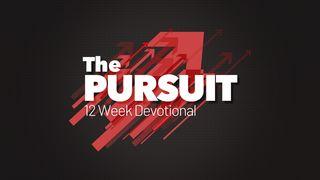Systematic TheologySample

We live in a world where everyone’s got an opinion, and social media makes sure we hear them all—loudly. Feeds overflow with hot takes, debates, and “definitive” answers. But in all that noise, one voice has been speaking long before Twitter threads, TikTok rants, or your favorite podcast: God’s. And He’s not vague or cryptic—He gave us His words in a book.
The Bible isn’t a self-help guide, a collection of wise sayings, or some divine fortune cookie. It’s God’s revelation to humanity. Sure, Psalm 19:1 says creation declares His glory (ever stared at a mountain and thought, “Wow, God”?), but Scripture is where He turns the volume up and gives us the details—who He is, what He’s done, and what He’s about to do.
Paul takes it a step further in Romans 1, saying that while creation gives us a glimpse of God, it’s Scripture that tells the full story. If the Grand Canyon is God’s cosmic “Check this out,” then the Bible is His autobiography. One gives us wonder; the other gives us Jesus.
Yes, humans wrote the Bible. No, that doesn’t mean it’s just another human book. God worked through real people with their personalities, quirks, and (probably) questionable penmanship. Paul wrote letters tackling church drama, yet his words carried divine authority. David poured his heart into raw, emotional psalms, and—surprise!—some turned out to be messianic prophecies.
This divine-human partnership is why we call the Bible inspired. Mysterious? Sure. But as G.K. Chesterton put it, "The riddles of God are more satisfying than the answers of man." Translation: Your brain might hurt thinking about it, but it’s worth it.
Let’s break down the big words: Inerrancy means the Bible doesn’t affirm anything false. Infallibility means it’s completely trustworthy in all matters of faith and theology. Yes, scribes made typos (humans, remember?), but with thousands of manuscripts to cross-check, what we have today is incredibly close to the originals.
Saying, “The Bible is my authority,” is basically saying, “God is my authority.” We don’t worship the Bible—it’s not the fourth member of the Trinity—but we do recognize it as God’s direct communication to us. If you’re ignoring Scripture while waiting for a “word from the Lord,” that’s like leaving your friend on read and then complaining they never text you.
Acts 17:11 describes the Bereans as eager Scripture examiners, double-checking even Paul’s teaching. Imagine if we did that instead of accepting every viral “hot take” as gospel. We’ve got both the Old and New Testaments at our fingertips—why not treat them like the treasure they are?
Jesus told the religious leaders in John 5:39-40 that Scripture testifies about Him, but they missed the point. The Bible isn’t an end in itself—it’s meant to lead us to Christ. If your Bible study isn’t increasing your love for Jesus, you’re doing it wrong.
So, approach Scripture with reverence, curiosity, and an expectation that God still speaks. And when He does? Listen.
Scripture
About this Plan

In this 8-day reading plan, we’ll dive into the big ideas of Systematic Theology—no boring lectures, just straight-up, Bible-based truths. Each day unpacks a core doctrine, helping you think like Jesus and live like Him. Perfect theology? Nah. But better theology? Absolutely. Let’s get your mind on the right track with the stuff that actually matters!
More
We would like to thank Theos U for providing this plan. For more information, please visit: https://my.theosu.ca/pages/systematic-theology-theosu-x-youversion









